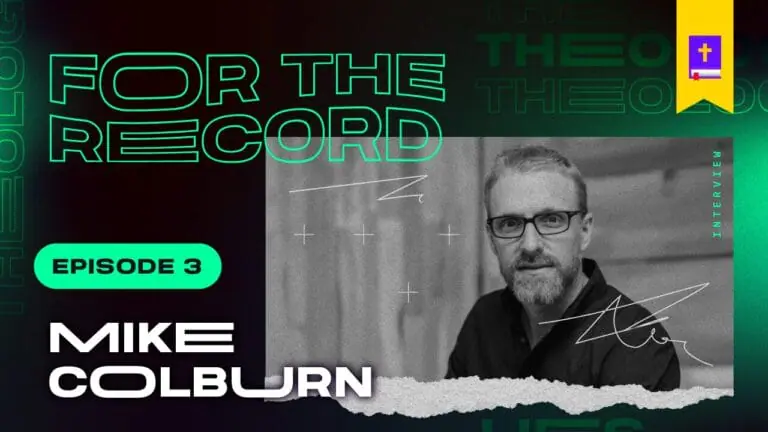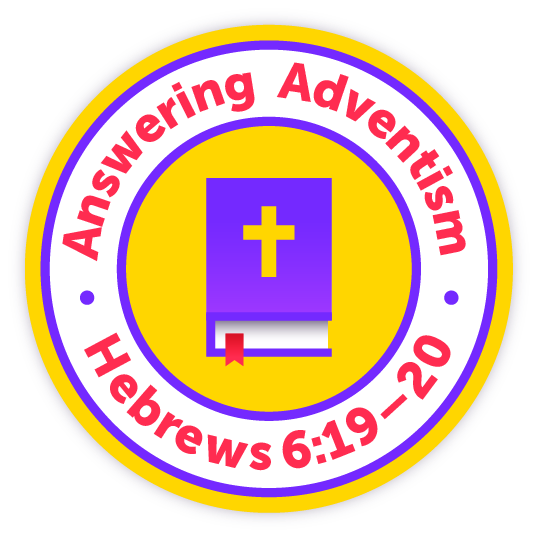One of the most common questions we get asked by those leaving Adventism is how to navigate finding a new local church. Our first recommendation is to make sure you understand what the Church is and the various usages of the term “church.” While we recognize the universality of the Christian faith, extending beyond the walls of simply one denomination, we recommend finding a Reformed church to fellowship with and be fed Christ through both Word and Sacrament ministry.
Why the Reformed tradition?
Simply put—we believe that the Reformed understanding of scripture is the most faithful, systematic expression of the biblical text.
What is Reformed theology?
The Reformed tradition stands as the counterpart to the Lutheran branch of the Protestant Reformation, distinguished by its unwavering emphasis on God’s sovereignty and Covenant Theology. It is deeply rooted in systematic doctrine, history, and confessional faith, shaping a rich, intellectually rigorous, and biblically grounded approach to the Christian faith.
Key Reformed Distinctives:
1. The Sovereignty of God
Reformed theology places a strong emphasis on God’s absolute rule over all things, including salvation. This belief greatly impacts the understanding of doctrines such as election and predestination.
Genesis 50:20; Psalm 135:6; Proverbs 16:9, 21:1; Daniel 2:21, 4:35; Job 42:2, Isaiah 45:7, 46:9-10; John 6:44; Acts 2:23, 17:26; Romans 8:28-30, 9:16; Ephesians 1:4-5
2. The Five Solas
Sola Scriptura – Scripture is the sole infallible rule of faith and practice for the Church. (2 Timothy 3:16-17; Isaiah 8:20; Matthew 4:4; Acts 17:11)
Sola Fide – Justification is by faith alone and sanctification is distinct from justification. (Romans 3:28; Ephesians 2:8-9; Galatians 2:16; Philippians 3:9)
Sola Gratia – All of salvation is by God’s grace alone (calling, electing, justifying, etc.). (Romans 11:6; Titus 3:5; Ephesians 1:4-6; John 6:44)
Solus Christus – Christ alone is the only mediator between God and man. (1 Timothy 2:5; John 14:6; Acts 4:12; Hebrews 7:25)
Soli Deo Gloria – All glory belongs to God alone. (Isaiah 42:8; Romans 11:36; 1 Corinthians 10:31; Revelation 4:11)
3. The Doctrines of Grace (TULIP)
Total Depravity – All of man’s being is touched by sin (will, emotions, etc.) (Genesis 6:5; Jeremiah 17:9, Romans 3:10-12; Ephesians 2:1-3)
Unconditional Election – God chooses the elect based on His will, not any human merit. (John 6:37, 15:16; Romans 9:15-16, Ephesians 1:4-5)
Definite Atonement – Christ’s atonement is entirely successful for those for whom it was made. (John 10:11-15; Matthew 1:21; Ephesians 5:25; Hebrews 7)
Irresistible Grace – Those whom God elects will inevitably be brought to faith through God’s mercy. (John 6:44, 65; Acts 13:48; Romans 8:30)
Perseverance of the Saints – God will keep and persevere His people until the end. (John 10:28-29; Romans 8:38-39; Philippians 1:6, Jude 24-25)
4. Covenant Theology
Reformed theology teaches that God’s relationship with humanity is built on covenants, with Scripture revealing two primary ones: the Covenant of Works (before the Fall) and the Covenant of Grace (after the Fall). Unlike Dispensationalism and New Covenant Theology, which emphasize a sharp divide between the Old and New Testaments, Reformed theology sees them as a unified, unfolding story of God’s redemptive plan—one continuous work of grace from Genesis to Revelation.
Genesis 2:16-17, 3:15, 6:18, 12:2-3; Exodus 24:7-8; 1 Samuel 7:12-16; Jeremiah 31:31-33; Hosea 6:7; Luke 22:20; John 6:37-39, 17:2-5; Romans 4:11, 5:12-19; Galatians 3:7-9, 16; Ephesians 1:4-5; 1 Corinthians 15:22; 2 Timothy 1:9; Hebrews 8:6-13
5. Church Government
Most Reformed churches embrace a Presbyterian form of church polity which is characterized by a plurality of elders (presbyters) who rule and oversee the church, rather than a single bishop (episcopal) or direct congregational rule.
Church Leadership by Elders (Presbyters)
Acts 14:23 – “And when they had appointed elders for them in every church, with prayer and fasting, they committed them to the Lord in whom they had believed.”
Titus 1:5 – “This is why I left you in Crete, so that you might put what remained into order, and appoint elders in every town as I directed you.”
1 Timothy 5:17 – “Let the elders who rule well be considered worthy of double honor, especially those who labor in preaching and teaching.”
James 5:14 – “Is anyone among you sick? Let him call for the elders of the church, and let them pray over him, anointing him with oil in the name of the Lord.”
These passages demonstrate that churches in the apostolic era were governed by a plurality of elders, not a single leader.
Elders Rule Collectively (Presbyterianism) Instead of a Single Bishop (Episcopalianism)
Acts 20:17, 28 – “Now from Miletus he sent to Ephesus and called the elders of the church to come to him. … Pay careful attention to yourselves and to all the flock, in which the Holy Spirit has made you overseers, to care for the church of God, which He obtained with His own blood.”
In this text, elders (πρεσβυτέρους) and overseers (ἐπισκόπους) are used interchangeably, showing that bishops and elders are not separate offices but the same.
1 Peter 5:1-2 – “So I exhort the elders among you, as a fellow elder and a witness of the sufferings of Christ, as well as a partaker in the glory that is going to be revealed: shepherd the flock of God that is among you, exercising oversight…”
Again, elders are given the task of oversight (bishop-like authority) over the congregation collectively.
Authority of a Church Court (Presbytery and General Assembly Model)
Acts 15:2, 6, 22 – “And after Paul and Barnabas had no small dissension and debate with them, Paul and Barnabas and some of the others were appointed to go up to Jerusalem to the apostles and the elders about this question. … The apostles and the elders were gathered together to consider this matter. … Then it seemed good to the apostles and the elders, with the whole church, to choose men from among them and send them to Antioch…”
The Jerusalem Council in Acts 15 provides a biblical precedent for church courts beyond the local congregation, where elders collectively decide doctrinal and practical matters. This mirrors Presbyterian sessions, presbyteries, synods, and general assemblies today.
Congregations Are Connected, Not Independent (versus Congregationalism)
Acts 16:4 – “As they went on their way through the cities, they delivered to them for observance the decisions that had been reached by the apostles and elders who were in Jerusalem.”
This shows that local churches submitted to a higher council, indicating a connectional rather than independent church government.
2 Corinthians 8:19 – “And not only that, but he has been appointed by the churches to travel with us as we carry out this act of grace…”
The churches worked together in coordinated decision-making, reinforcing Presbyterian connectionalism over independent congregationalism.
6. The Sacraments
The Reformed embrace two sacraments—Baptism and the Eucharist—as essential signs of God’s covenant and means of grace. Baptism is administered to both professing believers and their children, marking them as part of the visible covenant community of God’s people.
Genesis 17:7-10; Colossians 2:11-12; Acts 2:38-39, 16:14-15, 31-33; 1 Corinthians 1:16, 12:13; Romans 6:3-4; Ephesians 2:8-9; 1 Peter 3:21
In the Lord’s Supper, they affirm that believers truly receive Christ’s body and blood, though they differ on exactly how this happens (mode of reception)—a key point of debate between them and the Lutherans. However, they firmly reject the Roman Catholic doctrine of transubstantiation, holding instead that the Holy Spirit is the means by which the believer is nourished, both body and soul, on the Body and Blood of Christ who remains locally present in heaven on His throne.
Exodus 24:8-11; 1 Corinthians 10:1-4, 16-17, 11:24-29; John 6:53-56; Luke 22:19-20; Matthew 26:26-28
7. The Law Gospel Distinction
This was universal among the churches of the Reformation (Reformed, Lutheran, and Anglican) and is fundamental to rightly handling the Scriptures. It is one of the key areas in which the churches of the Reformation differ from the Roman Catholic Church. Dutch Reformed theologian Louis Berkhof notes this in his Systematic Theology where he writes:
The Churches of the Reformation from the very beginning distinguished between the law and the gospel as the two parts of the Word of God as a means of grace. This distinction was not understood to be identical with that between the Old and the New Testament, but was regarded as a distinction that applies to both Testaments. There is law and gospel in the Old Testament, and there is law and gospel in the New. The law comprises everything in Scripture which is a revelation of God’s will in the form of command or prohibition, while the gospel embraces everything, whether it be in the Old Testament or in the New, that pertains to the work of reconciliation and that proclaims the seeking and redeeming love of God in Christ Jesus.
Louis Berkof, Systematic Theology, [Grand Rapids, 4th edn. 1941], pg. 612
Romans 3:20, 5:20-21, 8:3-4, 10:4; Galatians 2:16, 3:10-12, 24; Philippians 3:9; 2 Corinthians 3:6-9; Matthew 5:48; Titus 3:5
What makes Reformed Theology distinct?
The Reformed tradition distinguishes itself within Protestantism through its commitment to systematic theology and adherence to the historic Christian creeds and confessions, including the Apostles’ Creed, the Nicene Creed, the Westminster Confession of Faith, and the Heidelberg Catechism. Its distinct views on the Church and the sacraments set it apart from Roman Catholic, Lutheran, and Baptist traditions, shaping a unique approach to both public and private worship as well as Christian living. Central to Reformed worship is expository, verse-by-verse preaching, which is regarded as essential to the proper administration of both Word and Sacrament.
Presbyterian denominations in the United States that we recommend:
The Presbyterian Church of America (PCA)
The Orthodox Presbyterian Church (OPC)
The Reformed Presbyterian Church in North America (RPCNA)
United Reformed Churches in North America (URCNA)
Reformed Churches in America (RCA)
Christian Reformed Church (CRC)
Protestant Reformed Churches (PRC)
Free Presbyterian Church
What if there are no Reformed churches in my area?
We recommend finding a classically Protestant, confessional Lutheran or Anglican extension of Christ’s body to receive both Word and Sacrament.
We do not recommend joining a modern day evangelical local church (non-denominational, Pentecostal, etc.) which have their roots in the Radical Reformation of the Anabaptists, no differently than Seventh-day Adventism. We also recommend against joining Roman Catholicism, Coptic, Assyrian Church of the East (ACoE), and Orthodoxy (Eastern, Greek, Oriental, etc.).
However, this does not mean that we do not recognize that lots of well-meaning, born-again believers fellowship within and are a part of these various local expressions of the Christian faith. Which is why we pray for unity within the Church as scripture implores us to seek (John 17:20; Romans 15:5–6; Ephesians 4:2–3).
We recognize and agree with the sentiment of church historian, Philip Schaff, who notes in his infamous History of the Christian Religion:
The unhappy divisions of Christendom, while they are the source of many evils, have also the good effect of multiplying the agencies for the conversion of the world and facilitating the free growth of every phase of religious life. The evil lies not so much in the multiplicity of denominations, which have a mission to fulfil[l], as in the spirit of sectarianism and exclusivism, which denies the rights and virtues of others. The Reformation of the sixteenth century is not a finale, but a movement still in progress. We may look hopefully forward to a higher, deeper and broader Reformation, when God in His overruling wisdom and mercy, by a pentecostal effusion of His Holy Spirit upon all the churches, will reunite what the sin and folly of men have divided. There must and will be, in the fullest sense of Christ’s prophecy, “one flock, one Shepherd” (John 10:16).
Philip Schaff, History of the Christian Religion, Vol. VII, § 2. Protestantism and Romanism













